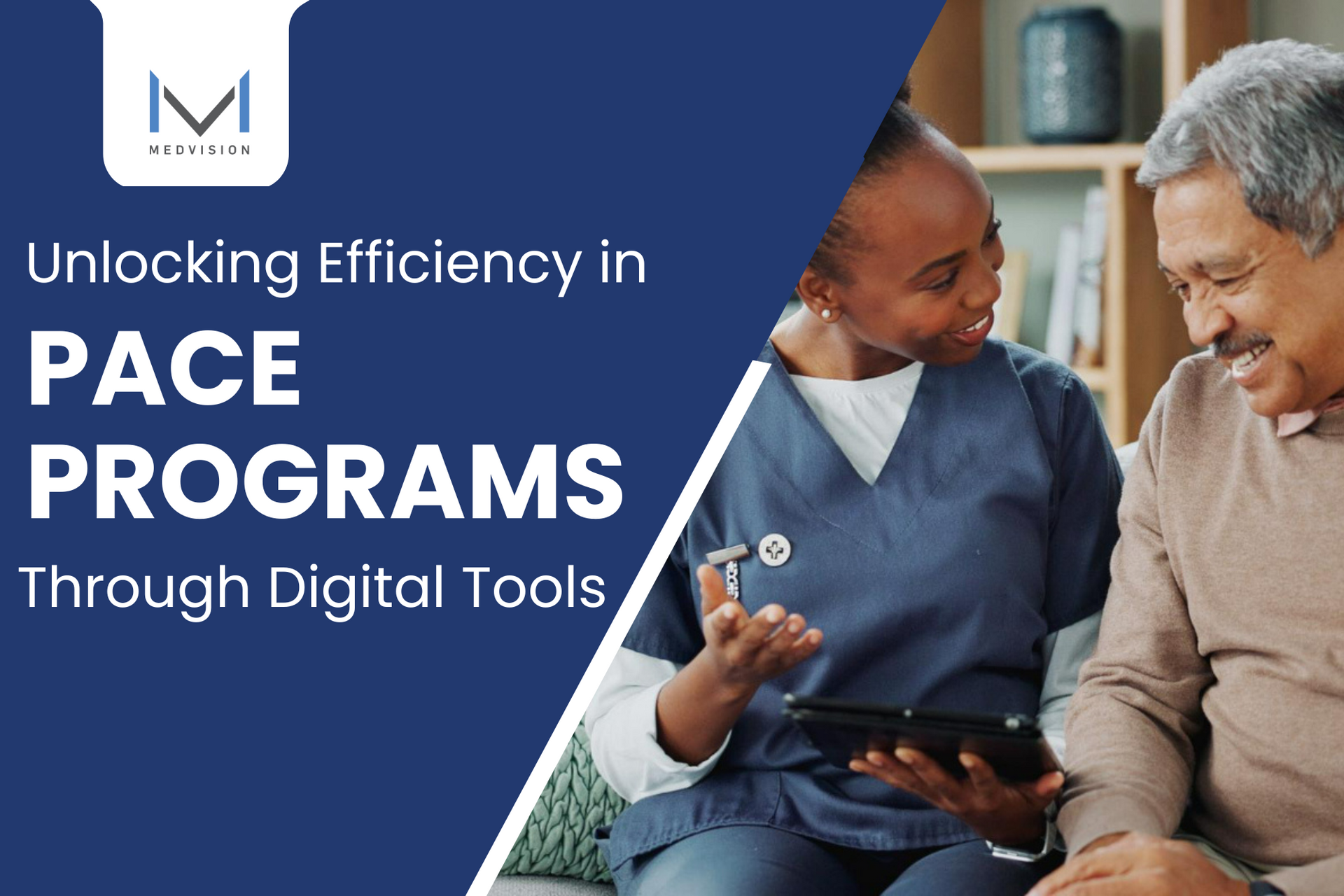TPAs: Streamlining Care Coordination Through Innovative Platforms

According to the 2020 Employer Health Benefits Survey, most employers spend $21,342 annually on their employees' health insurance. This fact highlights the crucial role of Third-Party Administrators (TPAs) in driving efficient and cost-effective care coordination.
The Institute of Medicine acknowledges that Care Coordination has the potential to improve the effectiveness, safety, and efficiency of the American healthcare system. However, to enhance their efficiency and effectiveness, TPAs should leverage innovative practice management software platforms and various administration solutions that streamline their operations.
MedVision supports this vision with
QuickCap, a highly adaptable platform that enables TPAs to manage various healthcare segments. The software’s flexibility allows it to meet unique organizational needs and adapt to evolving industry standards, ensuring TPAs can navigate complex healthcare landscapes while maintaining high service standards.
Experience The Platform that Prioritizes Care
Understanding the Role of TPAs in Healthcare
Third-party administrators are organizations that manage various aspects of employee benefit plans, primarily on behalf of employers. They handle tasks that enable healthcare providers to focus on delivering quality care while ensuring patients receive the benefits they are entitled to. TPAs mainly do the following:
Claims Processing: Manages reimbursement for medical services.- Enrollment Management: Handles employee benefit plan enrollments.
- Regulatory Compliance: Ensures adherence to healthcare regulations.
- Network Management: Manages provider networks and contracts.
- Customer Support: Assists employers and employees.
However, without the support of innovative platforms and efficient operations, TPAs frequently face challenges, such as:
Communication Barriers: Challenges in effective information exchange, which could typically take days to obtain.- Fragmented Data Systems: Inefficient data management across multiple sources.
- Regulatory Changes: Difficulty in navigating evolving healthcare regulations.
- Cost Management: Balancing operational expenses.
- Technology Integration: Implementing and adapting to advanced systems.
Overcoming these hurdles requires innovative solutions that streamline operations and empower TPAs in healthcare management and care coordination.
The Importance of Care Coordination
Care coordination is one of the primary responsibilities of TPAs and a crucial element in delivering high-quality healthcare. It involves organizing patient care activities and sharing information among all participants concerned with a patient's care to achieve safer and more effective care.
The goal is to ensure that patients receive the right care at the right time, minimize duplication of services, and prevent medical errors. There are several benefits to care coordination, including:
- Enhanced Patient Safety as it reduces medical errors and improves medication management.
- Improved Patient Education and Engagement through better promotion, understanding, and adherence to treatment plans.
- Optimized Resource Utilization by efficiently allocating healthcare resources, ultimately reducing costs.
- Better Chronic Disease Management through proactive condition management, improving health outcomes.
- Reduced Health Disparities by ensuring equitable access to quality care for all patients.
- Support for Caregivers as it provides resources and assistance in navigating healthcare systems.
By fostering collaboration and efficiency across healthcare teams, effective care coordination plays a pivotal role in enhancing the quality and accessibility of healthcare services.
The Need for Streamlined Processes
Inefficient processes can directly impact care delivery. For instance, a slow, error-prone claims processing system can delay payments to healthcare providers, preventing them from purchasing supplies or maintaining staff levels, and thus affecting patient care.
Streamlining these processes boosts TPA performance and improves overall healthcare delivery. Some negative aspects of having inefficient processes are:
- Fragmented Care: Inefficient communication and coordination can contribute to fragmented care delivery, impacting patient outcomes and care continuity.
- Patient Dissatisfaction: Delays in appointment scheduling, slow processing of claims, and errors in billing can frustrate patients, leading to dissatisfaction with their healthcare experience.
- Provider Frustration: Healthcare providers may experience delays in receiving payments and resolving claims issues, impacting their cash flow and operations.
- Wasted Resources: Manual data entry and inefficient record-keeping consume valuable time and resources, diverting attention from more critical tasks and reducing overall productivity.
- Ineffective Decision-Making: Without streamlined data management and reporting, accurate and timely data becomes challenging, hindering effective decision-making and strategic planning.
- Compliance Risks: Inefficiencies can lead to lapses in regulatory compliance, resulting in potential fines and legal issues.
With the right innovative systems in place, TPAs can address or prevent such aspects and deliver excellent patient care.
How TPAs Leverage Innovative Platforms
Innovative technology platforms provide numerous features that significantly enhance the capabilities of TPAs. These features streamline operations and improve the overall experience for both TPAs and their clients.
Technology plays a crucial role in modernizing TPA operations, offering practical solutions that enhance efficiency and accuracy:
- Automating the entire claims processing workflow to reduce manual intervention and minimize errors
- Consolidating data from various sources into a centralized system for seamless data sharing and better decision-making
- Providing real-time analytics and reporting tools to monitor performance and track key metrics
- Offering secure communication channels for effective collaboration between TPAs, providers, and patients
- Ensuring regulatory compliance with automated updates and adherence to current standards
By adopting innovative platforms, TPAs and their clients benefit from:
- Increased efficiency through reduced administrative burdens.
- Enhanced accuracy in claims processing and coverage management.
- Cost savings by eliminating inefficiencies and reducing errors.
- Improved client satisfaction with faster claims processing and more accurate data management.
- Better decision-making enabled by access to real-time data and analytics.
- Enhanced regulatory compliance to avoid penalties and legal complications.
These benefits empower TPAs to optimize their operations and deliver superior service, enhancing their competitive edge in the healthcare administration sector.
Redefining Care Coordination with MedVision

Delivering exceptional care rests on efficient and effective practice management platforms. MedVision’s QuickCap offers a comprehensive solution designed to seamlessly elevate your ability to coordinate care.
With Quickcap's
value-based care model, you get a comprehensive platform that meets your current need and can adapt to any future demands. Whether managing a single plan or multiple employer structures, QuickCap effortlessly streamlines your operations.
Experience a new standard in care coordination with QuickCap:
- Claims Processing Software: Streamline workflows with advanced claims adjudication for faster processing and reduced errors.
- Workflow Automation: Automate tasks like eligibility verification and authorization processing to boost productivity.
- Real-Time Insights: Utilize robust analytics and customizable dashboards to make informed, data-driven decisions that optimize resource allocation and enhance patient outcomes.
- Improved care coordination: Enhance communication across providers, insurers, and patients with EDI and value-based reimbursement configurations.
Upgrading to QuickCap positions you at the forefront of innovation in various healthcare administration programs. Stay ahead of industry demands with a platform that grows alongside your needs, ensuring exceptional care coordination and long-term success.
Achieve Excellent Care with QuickCap
Recently published articles
Keep in touch
Subscribe to get the latest update
Trending topics
Share your insights on social media
Upcoming events and company news















